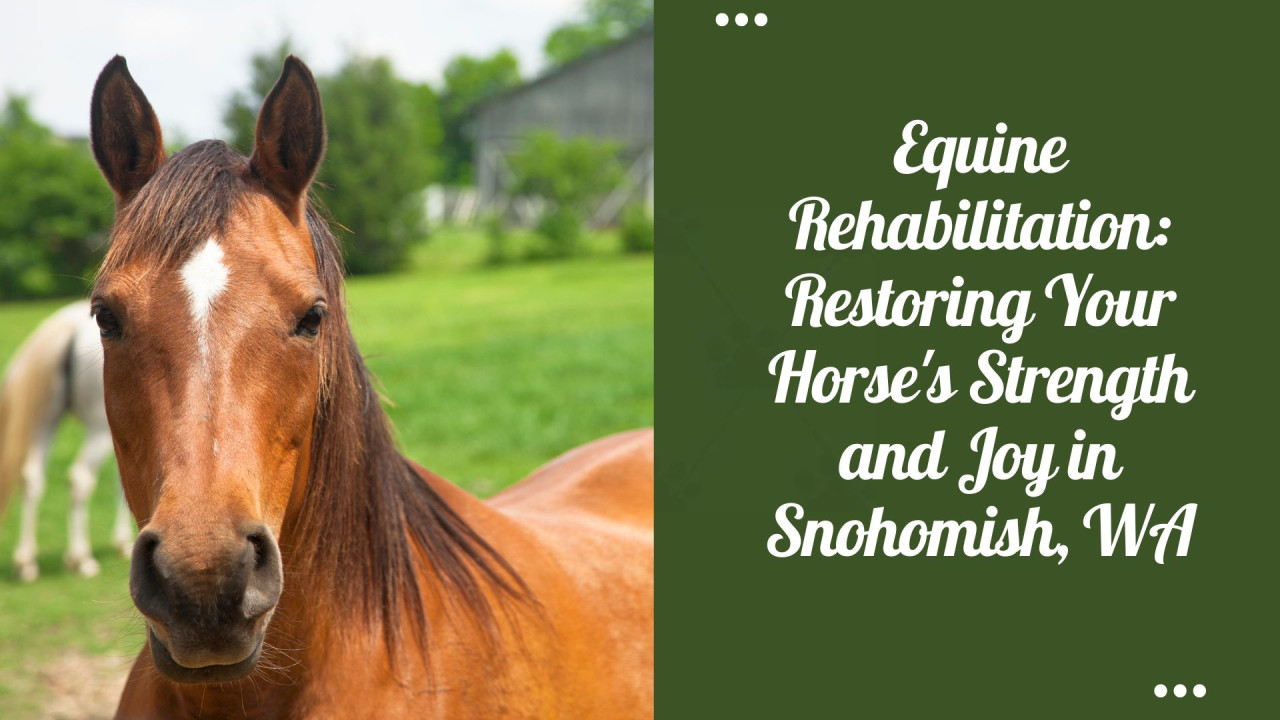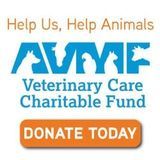Equine Rehabilitation: Restoring Your Horse's Strength and Joy in Snohomish, WA
Horses are majestic creatures, capable of incredible athleticism and forming deep bonds with their owners. But like any athlete, they are susceptible to injuries and conditions that can affect their movement and overall well-being. When this happens, equine rehabilitation can be a powerful tool to get your horse back on track to a healthy and happy life.
Recognizing Signs Your Horse Needs Rehabilitation
Your horse can't tell you directly when something hurts, so it's important to be observant and pick up on subtle changes in their behavior or movement. Here are some common signs that might indicate your horse could benefit from a rehabilitation program:
- Difficulty Moving or Lameness: This is the most obvious sign. Pay attention to any hesitance to put weight on a leg, stiffness in their gait, or difficulty performing movements they used to do with ease.
- Post-Surgical Recovery: After surgery, your horse will need carefully managed rehabilitation to regain strength and restore full function in the affected area. A rehab program can significantly improve the success of the surgery and minimize long-term complications.
- Muscle Soreness or Weakness: Signs like difficulty getting up, reluctance to engage in playful behaviors, or a general lack of energy could indicate muscle soreness or weakness. Rehabilitation can help address these issues and improve your horse's overall strength and flexibility.
- Neurological Conditions: Certain neurological conditions can affect your horse's balance, coordination, and proprioception (body awareness). Rehabilitation can play a crucial role in managing these conditions and improving your horse's quality of life.
- Behavioral Changes: Sometimes, a sudden shift in behavior, such as becoming withdrawn, grumpy, or exhibiting aggression, can be a sign of underlying pain or discomfort. Rehabilitation can address the physical issue and help your horse return to their usual happy and friendly self.
What to Expect During Equine Rehabilitation
If you suspect your horse needs rehabilitation, the first step is to consult a licensed veterinarian with expertise in equine rehabilitation. They will perform a thorough evaluation, including a physical exam, gait analysis, and potentially diagnostic imaging, to assess the extent of the problem and design a personalized rehabilitation plan tailored to your horse's specific needs.
The rehabilitation program itself will likely involve a combination of therapies, often delivered by a team of specialists including veterinarians, physical therapists, and massage therapists. Here's a glimpse into what you might expect:
- Physical Therapy: This can include a variety of exercises designed to improve your horse's strength, flexibility, range of motion, and balance. Exercises can be tailored to target specific muscle groups or address specific limitations. Underwater treadmills and other specialized equipment may also be used in some cases.
- Massage Therapy: Massage can help to improve circulation, reduce pain and inflammation, and promote healing. It can also help to identify areas of muscle tension or tightness that may be contributing to your horse's discomfort.
- Other Therapies: Depending on your horse's needs, other modalities such as laser therapy, cold therapy, or heat therapy may be incorporated into the rehabilitation program.
Throughout the rehabilitation process, progress will be closely monitored and the plan will be adjusted as needed. This ensures your horse continues to make the most of the program and avoids any setbacks.
How Equine Rehabilitation Can Improve Your Horse's Well-Being
Equine rehabilitation isn't just about getting your horse back to a certain level of function, it's about improving their overall well-being. Here are some of the key benefits you can expect:
- Improved Pain Management and Mobility: Rehabilitation can significantly reduce pain and inflammation, allowing your horse to move more freely and comfortably.
- Increased Strength and Flexibility: Targeted exercises and therapies will help your horse regain muscle strength and improve their range of motion, leading to better performance and a lower risk of future injuries.
- Enhanced Recovery from Injuries or Surgeries: A well-designed rehabilitation program can significantly accelerate healing and improve the long-term success of surgeries.
- Improved Athletic Performance (if applicable): Rehabilitation can help horses return to their previous athletic capabilities, or even reach a higher level of performance, by addressing any underlying issues and building strength and stamina.
- Increased Quality of Life: Ultimately, the goal of rehabilitation is to give your horse back the ability to enjoy life to the fullest. By eliminating pain and improving mobility, you're giving your horse the freedom to move, play, and bond with you the way they deserve.
The Road to Recovery Starts Here at Cedarbrook Veterinary Care
At Cedarbrook Veterinary Care, serving the equine communities of Snohomish, Monroe, Woodinville, Duvall, Lake Stevens, Redmond, and surrounding areas, we understand the deep bond you share with your horse. Seeing them experience pain or limitations can be heartbreaking. That's why we offer comprehensive equine rehabilitation services designed to get your horse back to feeling their best and enjoying the activities they love. Our team will work to create a personalized rehabilitation program tailored to your horse's specific needs.
Ready to take the first step towards your horse's recovery? Contact Cedarbrook Veterinary Care today to schedule a consultation with one of our equine rehabilitation specialists. We look forward to partnering with you to help your horse achieve a full and healthy recovery.
By accepting you will be accessing a service provided by a third-party external to https://cedarbrookvet.com/




